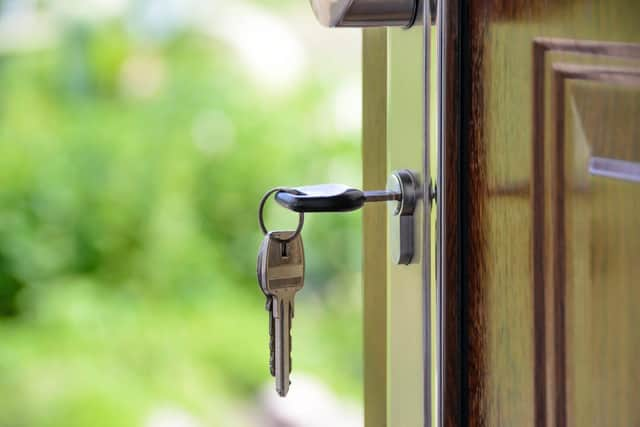Beware of common locksmith scams in 2024: how to protect yourself
and live on Freeview channel 276
Locksmiths play a crucial role in maintaining this security by providing essential services such as lock repair, emergency unlocking, and key duplication.
However, as the demand for locksmith services has increased, so too has the prevalence of locksmith scams.
Advertisement
Hide AdAdvertisement
Hide AdIt's essential to be aware of these deceptive practices to protect yourself from falling victim. Here, we'll explore some of the most common locksmith scams and offer tips on how to avoid them.


Experts at Middlesbrough Locksmith had this to say "In 2024, it is anticipated that locksmith scams will remain a prevalent problem, emphasising the critical need for awareness about these scams.".
The Bait-and-Switch Tactic
One of the most common scams in the locksmith industry is the bait-and-switch tactic. Scammers will advertise services at incredibly low prices to lure in unsuspecting customers. Once on the job, they claim that the work required is far more complicated than initially thought, leading to significantly higher charges. To avoid this scam, always ask for a detailed quote before any work begins and ensure that the quote includes all potential costs. If the locksmith refuses to provide a clear estimate, it's a red flag.
The Cash-Only Scheme
Another red flag is when a locksmith insists on cash-only payments. This is often a sign that the business is not legitimate, as cash transactions are harder to trace and dispute. A reputable locksmith will provide a variety of payment options, including credit cards and checks. Always request a receipt for any services rendered, and if a locksmith is unwilling to accept other forms of payment or provide a receipt, it's best to find another provider.
The Unmarked Vehicle
Advertisement
Hide AdAdvertisement
Hide AdProfessional locksmiths typically operate out of clearly marked service vehicles that display the company's name, logo, and contact information. If a locksmith arrives in an unmarked vehicle or a personal car, it could indicate that they are not from a legitimate business. Always verify the identity of the locksmith and the legitimacy of the company they claim to represent before allowing them to start work.
The False Local Listing
Scammers often create fake local listings with local phone numbers and addresses to give the impression that they are a nearby business. When you call the number, you're actually redirected to a call center that dispatches unqualified individuals who may not be properly trained or licensed. To ensure you're dealing with a legitimate local locksmith, do your research. Look for reviews, ask for recommendations from friends or family, and check the physical address listed online by visiting or confirming its existence through other means.
The Drilling Ultimatum
In a legitimate lockout scenario, a skilled locksmith should have the tools and expertise to unlock most doors without damaging the lock. However, scammers will often immediately suggest drilling the lock as the only solution, resulting in additional costs for replacing the lock. Be wary of any locksmith who insists on drilling as a first resort. A trustworthy locksmith will consider drilling as a last resort and will discuss all other options with you first.
The Licence Dodge
In many regions, locksmiths are required to be licensed to practice their trade. A common scam is for individuals to operate without the proper credentials, which can lead to substandard work or additional security risks. Always ask to see the locksmith's licence, and verify it with your local regulatory body if you have any doubts.
The Exorbitant Emergency Fee
Emergency locksmith services are often priced higher due to the urgency and off-hours work. However, scammers take advantage of desperate situations by imposing exorbitant emergency fees. While it's reasonable to pay a bit more for emergency services, the fee should still be within a reasonable range. Always ask for the emergency service fee upfront, and compare it with other local locksmiths if possible.
Protecting Yourself from Locksmith Scams
To avoid falling prey to these scams, follow these best practices:
-
Research and select a reputable locksmith before you need one. Save their contact information in your phone for easy access during emergencies.
-
Verify the locksmith's credentials, including their license and insurance, before they begin work.
-
Get a written estimate before any work is done, and make sure it includes all potential costs.
-
Be cautious of locksmiths who insist on cash payments or refuse to provide a receipt.
-
Trust your instincts. If something feels off about the locksmith or the service they're offering, don't hesitate to seek a second opinion.